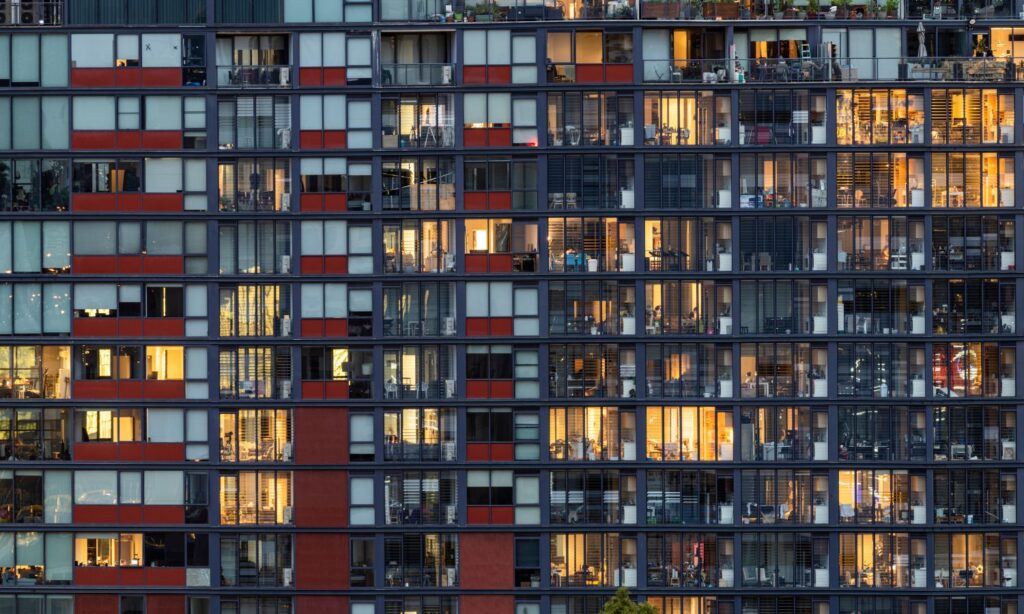Australia’s already barely manageable rental market is expected to just carry on climbing until no one can afford to pay for it, property experts are warning. Population growth is continuing to outpace housing supply, meaning that rent will only continue to increase as the market responds.
The latest data from the property market analytics company CoreLogic shows that house rents have climbed between 9 and 12% in Sydney and Melbourne over the past 12 months, with unit rents increasing by 15 to 17% respectively in the same period.
The rise has meant that almost 31% of median income is required to afford rent in these cities, the highest it has been in nearly a decade as rent climbs faster than at any time since the global financial crisis.
The problem is expected to continue unless drastic measures are taken. My Housing Market Chief Economist Andrew Wilson has told The Sydney Morning Herald that the only constraint on rent is the capacity for renters to pay.
“[High rents] are something we are going to have to live with, and governments can only really help those renters who are marginalised,” he told the paper.
Why Is Rent Going Up?
There’s no one factor but a multitude of reasons why rent keeps on rising in Australia. Rising interest rates, inflation, and the cost of living crisis are driving more people to rent rather than buy, according to real estate agents. Immigration, on track to net half a million this year, is also playing a major factor in pushing the market higher. Negative gearing and other tax incentives have made property a lucrative investment, rather than a basic human right. What many experts agree upon however is that chronic undersupply over years has certainly contributed to making the situation the nightmare it is today.
“We haven’t seen enough rental supply come onto the market to really help alleviate those tight rental conditions,” Nicola Powell, Chief of Research Economics for Domain has told the ABC.
“We’ve roughly got about 24,000 empty rentals across Australia today, so that makes a vacancy rate of 1 per cent.
“We essentially need that to double to make the vacancy rate balanced, and a balanced rental market is when you have a vacancy rate between two and three per cent”.
While some argue we should expect to see average rent increase by a further 2 to 4% over the final months of the year, CoreLogic researchers argue that the pace could begin to ease. This is owing to ceilings being hit of what is affordable and people, particularly younger people and students, being forced to move into share houses or back in with parents.
During the pandemic, average household size went down as people moved out of share-houses and into their own spaces. The Reserve Bank of Australia has calculated that the shift created an additional 120,000 households, putting further pressure on the market. High wages and a desire for space are also driving this trend but the RBA argues that rents will remain high until household size goes back up.
While some have argued the solution is to simply build far, far more houses than we are today, others lay the blame on short-term rentals. In NSW, Byron Shire local council have reduced the number of days that property in the region can be listed on sites like Airbnb and Stayz from 180 days a year down to 60. This was after surveys found that as much as 35% of the housing stock in the area is being used for short-term stays.
At the top level, the government has just passed a $10 billion plan to build 30,000 affordable and social homes over the next five years. While it’s expected to make a dent, housing won’t actually start to be built until at least next year, meaning it could be a long time before they start to impact the market.
Other options, like rental caps, eviction protections, and adjustments to tax settings, have either been ruled out by various state and federal leaders or are not being seriously considered. As such, significant change isn’t exactly looming on the horizon.
Related: Even in a Housing Crisis, Australians Can’t Get Enough of Renovation Stories on TV. Why?
Read more stories from The Latch and subscribe to our email newsletter.


